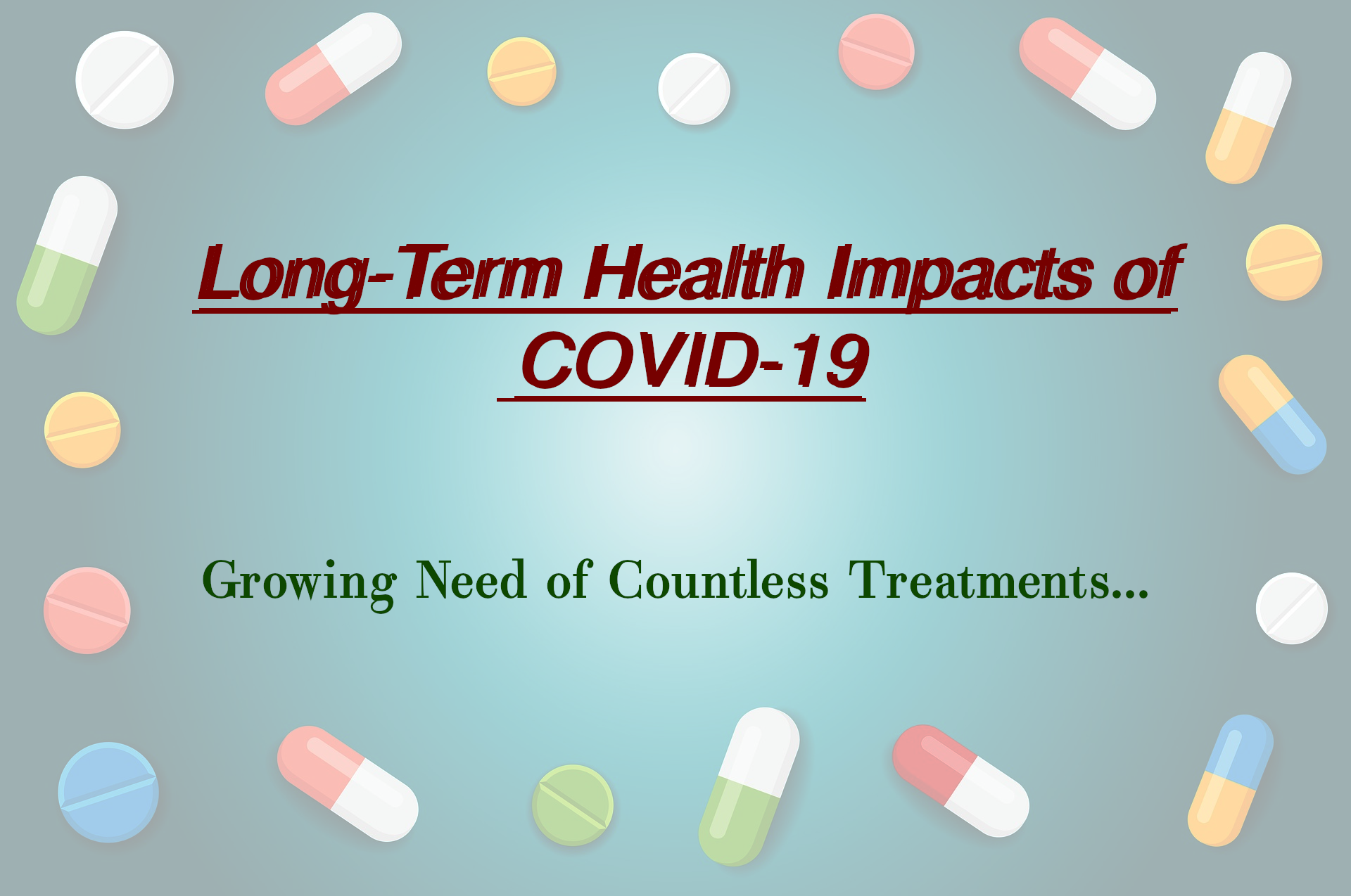In May 2020, total number of Covid-19 cases crossed a mark of 5 million of which, approximately 1.3 million cases are listed as recovered. However, experts are warning of possible long-term effects for patients after they’ve survived the corona disease. This disease attacks many organs within the body — from the lungs and heart, to the liver and kidneys. In addition, there are also, few instances of mental disorder after recovery such as post-traumatic stress disorder (PTSD), chronic fatigue, depression, and anxiety. These effects increased the demand for medicines in chronic categories and gave a major boost to the overall medical industry including pharmaceuticals and medical devices across various countries globally.
“According to an article published by Business Standard, in India, during April 2020, with the outbreak of COVID-19, cardiac therapy drugs experienced the sales growth of 19.8% compared to 11% in February 2020, anti-diabetic therapy, witnessed 18.2% growth in March, compared to nearly 10% in February. In addition, sales of respiratory medicines too observed a sharp growth of around 23% during April 2020, while the sales of anti-infective and urology drugs increased by 10.2% and 10.5% respectively in April 2020”
Severe effects on lungs leading to the growth of Acute Respiratory Distress Syndrome (ARDS) drugs
Long-term damage to the lungs is a major concern with corona virus which leads to dampening the capacity of lungs and shortening of breath. This usually happens due to putting patients on life-saving ventilators too early during the treatment. Along with that, formation of small blood clots in the lungs could be causing severe respiratory distress in some COVID-19 patients. Such conditions are expected to accelerate the demand for some of the leading drugs including Traumakine from Faron Pharmaceuticals, MultiStem from Athersys, BIO-11006 from BioMarck Pharmaceuticals, and Solnatide from APEPTICO.
Covid-19 Impact on Cardiac Drugs Market
COVID-19 patients can also experience severe cardiovascular complications. One of the major complications includes, acute coronary syndrome, which is determined by the elevated high-sensitivity troponin levels. This condition is commonly observed in severe cases and is strongly associated with mortality.
Further, according to the American College of Cardiology, in U.S., about 16% of the total corona virus infected patients developed arrhythmia, and there were also cases of acute onset of heart failure, heart attack and cardiac arrest. In addition, critically ill COVID-19 patients can also be at risk for Cardiogenic Shock (CS), like a large acute myocardial infarction [AMI] and sepsis, a mixed aetiology of CS and septic shock. Thus, the extended effects of COVID-19 associated with cardiac complications are increasing the demand for leading cardiac drugs such as Aspirin from Bayer Pharmaceutical.
“As a result of coronavirus outbreak, Bayer saw a spike in profits during 1Q20 especially rise in the sales of Aspirin. Overall, the company reported that sales grew by 4.8% from 1Q19 to $13.91 billion during 1Q20.”
Along with Aspirin, demand for Plavix from Bristol-Myers Squibb Co. and Sanofi S.A., and Effient from Daiichi Sankyo Co. can also increase due to the possible complications such as blood clotting which can further result in heart attack and stroke.
Rising Instances of damage to kidneys due to Covid-19 lead to increase the demand for dialysis
Hospitals are generating increased need for dialysis machines as many corona infected patients are suffering from kidney damage during and after COVID-19 treatment. Doctors across the world says that, nearly 20-40% of the critically ill corona infected patients develop kidney related complications, which is mainly due to the combination of factors such as the fluctuations in people’s conditions and blood pressure and the medications to combat the disease condition putting stress on patient’s kidneys.
This condition in Covid-19 patients has accelerated the need of kidney dialysis machines across the globe. Two of the leading manufacturers of dialysis machines including Fresenius Medical Care AG & Co. KGaA and Baxter International Inc. have stated that, the demand of the machines could increase as much as 3-5 times as compared to regular demand.
High risk to develop complications in diabetic patients:
“It is a fact that people with diabetes are at increased risk of infections including influenza and for related complications such as secondary bacterial pneumonia. Late diabetic complications such as diabetic kidney disease and ischaemic heart disease may complicate the situation for people with diabetes, making them frailer and further increasing the severity of COVID-19 disease and the need for care such as acute dialysis.”
Development of depression, anxiety and other mental issue in COVID-19 patients increasing the need of psychotherapies
As the corona pandemic rapidly growing across the world, it is inducing a considerable degree of fear, worry and concern in the population at large and among certain groups in particular, such as older adults, care providers and people with underlying health conditions.
This fear is causing major psychological impact and elevated the rate of stress or anxiety. This is mainly attributed to the factors such as quarantine and its effects on many people’s usual activities (economic and social costs of pandemic such as unit shutdowns, countries’ economic downturns, and job and livelihood losses,) can lead to significant mental health stress, levels of loneliness, depression and anxiety. This may lead to increased, consumption of psychedelics, other than self-harm or suicidal behaviors. Due to this, there are also growing concerns about the possibility of the interactions between psychotropic drugs and the medication used to treat the COVID-19 infection, other than drug interactions in patients with multi-morbidity. These conditions have accelerated the need for supportive counselling through telephone help lines and telepsychiatry platforms. In addition, there will be noticeable increase in the demand of Serotonin, Norepinephrine, and Dopamine to manage the mental distress.
Want to Know about more such opportunities? contact us.


